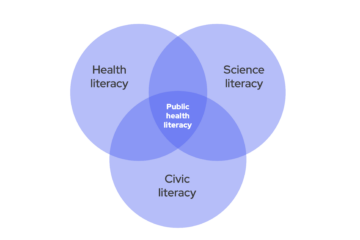Across the country, communities are wrestling with how to identify and dismantle the root causes of health inequities, like structural racism, that have persisted for centuries. Data are powerful tools that can be used to measure and address multiple dimensions of community health. However, the data systems that are used to track drivers of community health have been rooted in racist systems and assumptions. We must invest in building data systems that explicitly take on structural racism. These data systems must reflect the assets and needs of communities of color and advance upstream changes in power, access, and opportunity.
Today we launched Modernized Anti-Racist Data Ecosystems (MADE) for Health Justice — a new, multi-year initiative supported through a partnership between the Robert Wood Johnson Foundation and the de Beaumont Foundation. MADE for Health Justice seeks to accelerate the development of health-focused local data ecosystems that center principles of anti-racism, equity, justice, and community power. Through MADE for Health Justice, five non-profit organizations will be awarded up to $1,000,000 over three years to facilitate a multisector team tasked with building local data ecosystems focused on anti-racism, equity, justice, and community power.
From Local Data Systems to Interconnected Ecosystems
Within every community, there are local data systems — collections of organizations, people, processes, and policies within a local geography that are involved in data collection, management, analysis, and use. These systems include data across every sector, including housing, transportation, education, land use, and employment. Like pieces of a puzzle, they contain vital information that, if connected, could provide invaluable insights into the structural drivers of community health.
But when these data are used in isolation — and without critical input from the communities they impact and reflect — at best, they create a distorted view of a community’s health and well-being. At worst, data are used to fuel narratives, policies, and decisions that perpetuate structural racism and the health inequities it creates.
To realize their full potential, local data systems must be restructured to become ecosystems — interconnected generators of information that ultimately dismantle structural racism and improve community health. These ecosystems must connect data across multiple sectors of local government, prioritize the needs and voices of communities oppressed by structural racism, and ultimately drive just and equity-centered decision making.
Phase 1 applications for MADE for Health Justice are now open and will close on August 31, 2022. The initiative is part of a multi-faceted effort to create a more equitable national public health data infrastructure, inspired by the National Commission to Transform Public Health Data Systems established by RWJF. To learn more about this funding opportunity, view virtual sessions that discuss the initiative, and to apply, visit www.madeforhealthjustice.org or email [email protected].




